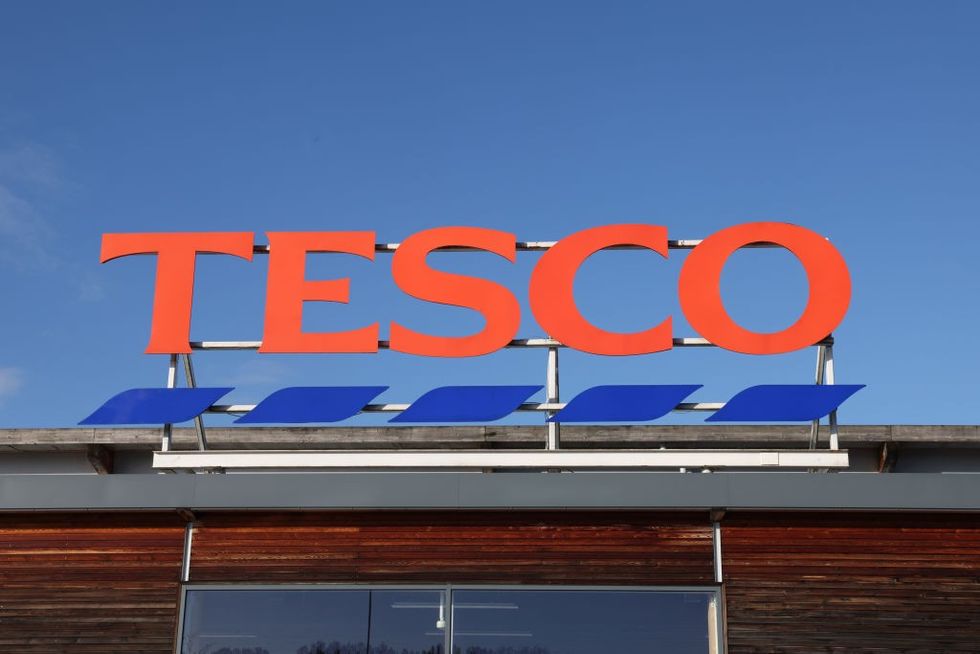Tesco is the latest supermarket to recall a product that has been deemed unsafe for customers.
The popular supermarket has urged shoppers to return BFree Sunflower & Pumpkin Seed Loaf 350g to stores.
BFree Sunflower & Pumpkin Seed Loaf 350g
Best before dates: All best before dates
Batch codes: All batch codes
The product is a possible health risk to anyone with a peanut allergy
Tesco
Tesco said: “BFree Foods is recalling all date and batch codes of BFree Sunflower & Pumpkin Seed Loaf 350g, as it may contain peanuts, which isn’t mentioned on the label. This means the product is a possible health risk to anyone with a peanut allergy.
“If you’ve bought an affected product and have an allergy/intolerance/sensitivity to peanuts, please don’t eat it. Instead, return it to a Tesco store for a refund. No receipt is required. Use our store locators to find your nearest UK Tesco store or ROI Tesco store.”
For more information, customers can contact BFree Foods directly by email at [email protected] or 00-353-1-779-0500.
Customers can also contact Tesco Customer Services on 0800 505 555 or 1800 248 123.
Allergy UK provides information on peanut allergies. Experts said: “Signs and symptoms usually occur within minutes of contact with peanuts, but can also occur up to one hour later. Most allergic reactions are mild but they can also be moderate or severe.
“Anaphylaxis (pronounced ana-fil-laxis) is the most severe form of allergic reaction which can be life-threatening.
“Mild to moderate symptoms include: itchy mouth, tongue and throat, swelling of lips, around the eyes or face, red raised itchy rash (often called nettle rash, hives or urticaria), vomiting, nausea, abdominal pain and diarrhoea, runny nose and sneezing.
“Any one or more of the following symptoms are a sign of a severe allergic reaction (anaphylaxis) and should be treated as a medical emergency. If available, adrenaline should be given without delay and an ambulance called with the call operator informed that it is anaphylaxis.
“Severe symptoms of anaphylaxis include swelling of the tongue and/or throat, difficulty in swallowing or speaking, change in voice (hoarse voice), wheeze (whistling noise) or persistent cough, difficult or noisy breathing, dizziness, collapse, loss of consciousness (due to a drop in blood pressure), pale, floppy, sudden sleepiness in babies.”
While food recalls do not occur very often, they must be taken seriously. The Food Standards Agency (FSA) explained what a food recall is and why they happen.
“If there is a problem with a food product that means it should not be sold, then it might be ‘withdrawn’ (taken off the shelves) or ‘recalled’ (when customers are asked to return the product),” said the Government department.
“The FSA issues Product Withdrawal Information Notices and Product Recall Information Notices to let consumers and local authorities know about problems associated with food.
LATEST DEVELOPMENTS

Affected customers have been urged not to eat the product and instead, return it to a Tesco store
GETTY IMAGES
“In some cases, a ‘Food Alert for Action’ is issued. This provides local authorities with details of specific action to be taken on behalf of consumers.”
The FSA added why a product may be recalled due to an allergy risk: “Sometimes foods have to be withdrawn or recalled if there is a risk to consumers because the allergy labelling is missing or incorrect or if there is any other food allergy risk. When there is a food allergy risk, the FSA will issue an Allergy Alert.”
In other Tesco news, a rare Lindor treat has hit shelves, sending chocolate lovers into a frenzy.
One delighted shopper said: “I did a little dance when I spotted them this morning in my Tesco. My absolute favourite flavour.”

Robert Johnson is a UK-based business writer specializing in finance and entrepreneurship. With an eye for market trends and a keen interest in the corporate world, he offers readers valuable insights into business developments.







